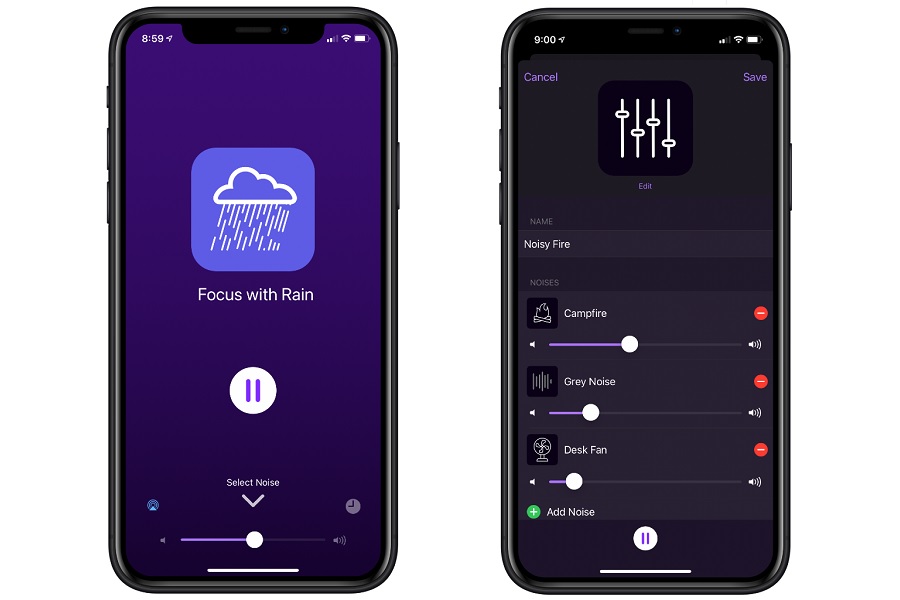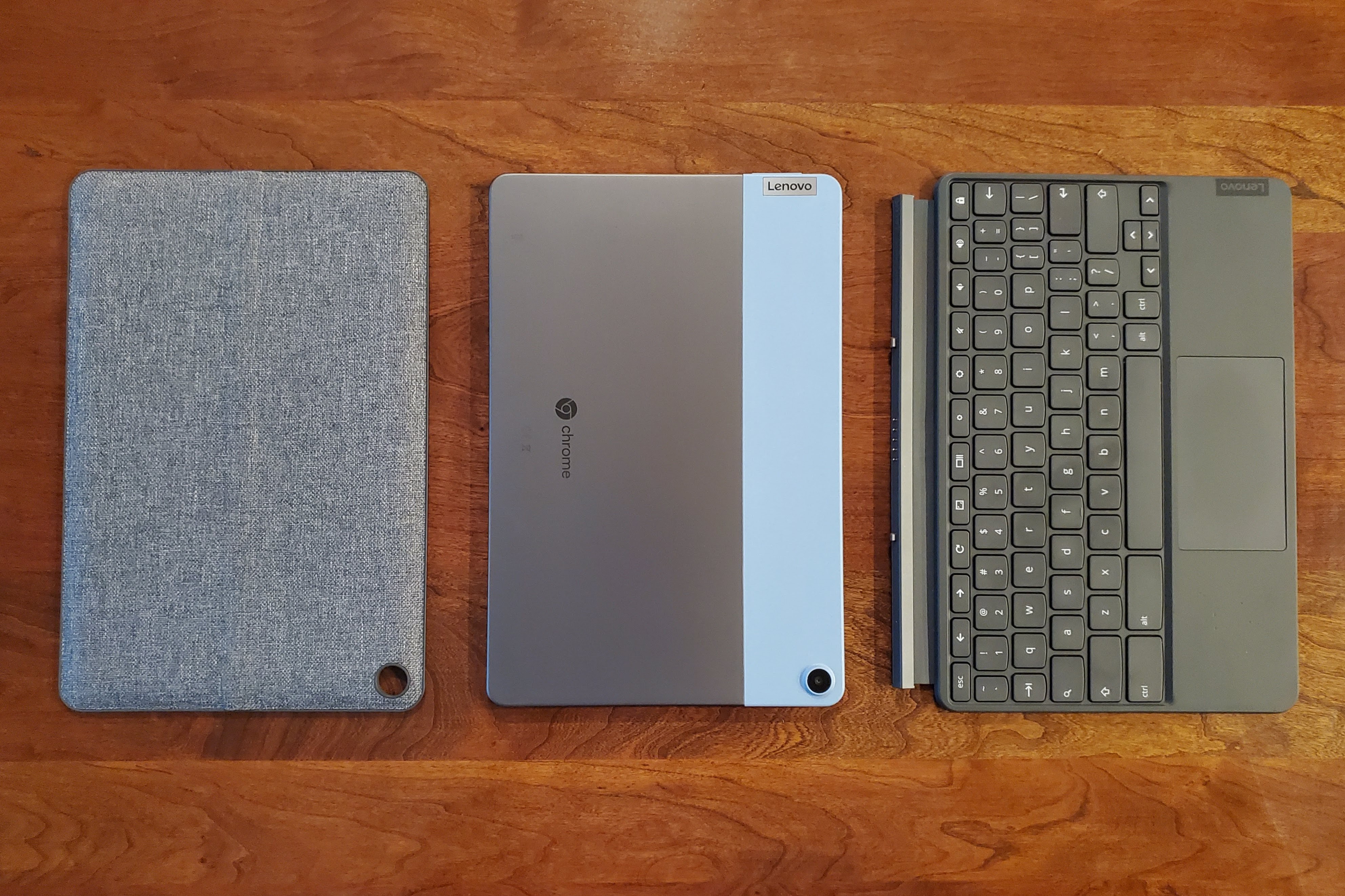 |
| |
 |
| December 22, 2020 |
| My favorite tech of the year |
|
Plus: More free Zoom time, Skype's neat new meeting mode, and a big sale on eBay
|
| |
 |
|
For me, the idea that Advisorator has been around long enough to have annual traditions is both hard to believe and humbling.
Yet here we are, closing out another calendar year, and once I'm again reflecting on the tech that I enjoyed most. While 2020 has been challenging for all the obvious reasons, being equipped with the right gadgets and tech tools has helped, and writing this newsletter for you all has been one of the year's great privileges.
So for the third year in a row, allow me to look back at my personal tech highlights. Some of these I've mentioned in previous newsletters, and others I haven't, but they all made 2020 a bit more bearable:
Slack for fun: Back in May, I wrote about how my oldest group of friends had just started using Slack instead of email to keep in touch, and it’s been a blast since then. Some of us already use Slack for work, so having personal communication a click away means we’re chatting a lot more, and we've got separate rooms for different topics—tech stuff, sports, music, and so on—instead of a single cluttered feed. I’ve even started using a Slack add-on called Hallway to set up occasional 10-minute video chats if anyone needs a break for work. Much like Slack itself, it's another ostensible business tool that turns out to be nice for personal use as well.
Oh, and that newsletter on Slack was also the birth of Advisorator's Slack chat room, where I've enjoyed chatting with some of you more extensively. I called it an experimental idea at the time, but at this point I can safely say it's here to stay.
Dark Noise: Up until a few weeks ago, I begrudgingly used a service called Noisli to help tune out whatever might by happening outside my office, cranking its ambient sounds through a pair of wireless earbuds. Noisli had served me well for years, but as I noted back in March, its website had switched to a subscription model, and its mobile apps hadn't been updated since 2017.
I've now found a suitable replacement called called Dark Noise. Like Noisli, it has a slick and simple design that lets you mix multiple sounds together. (My go to: Rain sounds and brown noise with a touch of thunder.) It also has a built-in timer and AirPlay support, and it works with Siri voice commands. In other words, it feels like what Noisli might have been if its developers hadn't abandoned the mobile version, and was well-worth the one-time price of $6. Too bad there's no Android version.
|
 |
|
Ear-plugging earbuds: Related to the above, I've been using my $20 no-name wireless earbuds a lot more in 2020 than when I first wrote about them in late 2019. When schools shut down in the spring, I needed a way to concentrate on writing during the times when I wasn't on kid duty. Those buds, cheap as they were, did a fine job plugging up my ears, and a little ambient noise was enough to create some semblance of a distraction-free environment. Of course, you can also spend a lot more on wireless earbuds with better sound quality, active noise cancellation, and perhaps higher levels of comfort, but the ones I got have worked just fine for my purposes, and they're even cheaper now.
Desk lamp charger: After mentioning this TaoTronics desk lamp with a built-in wireless charging pad in my Black Friday deal roundup, I decided to grab one myself. My office lacks an overhead light, and my main lamp never seems to cover my entire desk. I also seem to spend an inordinate amount of time charging various gadgets, so this seemed like an opportunity solve two problems at once.
It's been great. In addition to a wireless charging pad, the lamp also has a USB port where I've plugged in my Apple Watch charger, and the lamp itself provides lots of light settings and brightness levels. The only problem is that this specific model no longer seems to be for sale. (The closest equivalent is pricier, but also has a nicer brushed metal finish.).
Microsoft Edge: Eight months after making the case for Microsoft Edge, I’m still using it as my primary web browser. That's partly because of the "Collections" feature that can easily save groups of tabs for later, partly because I like Microsoft's implementation of installable web apps, and partly because its built-in privacy settings are stricter than Chrome’s. That, and it’s always nice to be a little less dependent on Google products.
Tabliss: Five months after discovering Tabliss, I can't imagine using a web browser without it. Once installed, this extension for Chrome, Edge, or Firefox replaces your standard new tab page with one that supplies stunning nature photos and all kinds of customizable widgets. I've set mine up to include the time, the weather, a list of bookmarks, and a simple to-do list for my daily work goals. Tabliss isn't the only new tab page of its kind, but it's lightweight and free of any ads or unsavory data collection policies. (The developer does accept donations.)
The “Remove Sticky” bookmarklet: When I dove into the weird world of browser bookmarklets back in July, I never expected to use the “Remove Sticky” bookmarklet as much as I do now. By clicking a button in my browser's bookmarks bar, I can instantly hide all the cookie warnings, floating menus, pop-up video windows, and other junk that make the modern web so unenjoyable to read. Yes, there are browser extensions that can do this sort of thing automatically, but I like being in control of when it happens. Besides, pressing a button to banish a web page’s cruft delivers a jolt of satisfaction every time. You can view the installation instructions alongside my full collection of useful browser bookmarklets here.
Lenovo Chromebook Duet: To be honest, I don't use this little Chromebook often—most of the time, I'm just at my desk—but it always makes me happy when I do. The Duet is a 10-inch tablet that turns into a laptop with its included keyboard case and kickstand, and while it's not the most powerful computer, it gets excellent battery life and is just fun to play with. At $300 (and often on sale for less), it's a great value that reminds me of netbooks from the late aughts.
Plexamp: Google's decision to discontinue Google Play Music this year was just the kick in the pants I needed to shore up my Plex music server setup, and it just so happened to coincide with the re-launch of Plexamp, a beautiful app for enjoying your own personal MP3 or FLAC collection. The app seems to celebrate full albums, making them easily accessible and changing its background colors to match the current album art, but it offers neat ways to rediscover your collection as well, such as the "Mix Builder" that instantly combines tunes from multiple artists. The way Plexamp intelligently creates crossfades between playlist tracks has also made my jaw drop on several occasions. It feels like an app designed by music nerds, not by executives who'd rather you listen to podcasts instead.
|
 |
|
Smart roller shades: I might cover this in greater depth in a future newsletter, but a few months ago our bedroom shades broke, so naturally I used the opportunity to replace them with something smarter. I settled on MySmartRollerShades (also known as Tilt) because our two bedroom windows are fairly wide, and their flat pricing regardless of size made them much cheaper than other options. An additional hub allows for automation through Amazon’s Alexa assistant, so now the bedroom blinds open up with our morning alarm, close down shortly before bedtime, and can additionally be controlled by voice. It’s not life-changing technology, but it’s one of the most satisfying smart home investments I’ve made so far.
Thanks again for giving me the opportunity to dive into all of this neat stuff with you all! I'd love to hear about the tech you're digging this year as well, so just reply to this email to get in touch.
|
 |
|
Did you know that you can now read and search through every past issue of Advisorator online? Just log into the members-only website and head to the Archives. If you signed up before mid-November and haven't created an account yet, just click here to get started.
|
 |
| Need to know |
|
Zoom's temporarily-unlimited meetings: Just as it did on Thanksgiving, Zoom is waiving the 40-minute meeting time limit for free users of its videoconferencing software, but only for a limited time:
- This week, from from Wednesday (Dec. 23) at 10 a.m. Eastern through Saturday (Dec. 26) at 6 a.m. Eastern.
- Next week, from Wednesday (Dec. 30) at 10 a.m. Eastern through Saturday (Jan. 2) at 6 a.m. Eastern.
After that, it's back to convincing your friend groups to try Google Meet or Microsoft Teams, which have lifted their meeting time limits until March (for the former) and "until further specified" (for the latter).
A weird Gmail outage: I don't often write about tech service outages, because people tend to stop caring about them immediately after they're over. The weird thing about last Tuesday's Gmail outage, however, is that it didn't just render the service inaccessible. As The Verge reports, some messages sent to Gmail users during the outage also bounced back to the sender with error messages, making it seem as if the address no longer worked. I personally had a few folks message me through alternate channels to say they couldn't reach me by email that evening.
The outage only lasted for about four hours on December 15, from around 3 p.m. Eastern to 6:51 p.m. Eastern, but if you sent any messages to Gmail users that bounced back during that period, I'd suggest giving it another try. (Also, this appears to be separate from a broader Google service outage that lasted for about 45 minutes on Monday of last week.)
|
 |
| Tip of the moment |
 |
|
Skype's neat new meeting mode: I know, I know. Just last week, I talked about hiding Skype's "Meet Now" button in Windows 10 and even uninstalling the software altogether. But now that Skype supports "Together Mode," I'm eager to try it again. This setting, which first debuted in Microsoft's Teams videoconferencing software, puts the participants in a virtual room. It looks a little goofy, but it's also meant to be less intense than the usual grid or speaker views. (I talked to Jaron Lanier, the feature's mastermind who also happens to be a virtual reality pioneer, for a Fast Company story back in August.)
Anyway, setting up a Skype meeting is much less of a hassle than using Microsoft Teams, especially if you use the free web version. You can create a meeting with one click, then invite other folks by sharing the link. (On Windows, just make sure to cancel the attempt to open the Skype app, then either click on your Microsoft account name or select "Join as Guest" to stay inside the web version.)
Just keep in mind you'll need at least five participants to use Together Mode. If anyone gives it a shot, I'd be curious to know how it goes.
|
 |
| Now try this |
|
Auto-refresh your iPhone wallpaper: Last week, Apple released iOS 14.3, and with it came the ability to automatically update your home screen or lock screen with new background photos on a regular basis. Depending on how you set it up, you can keep your phone looking fresh with personal pictures, nature photos, or revolving selection of downloadable wallpapers.
Setting this up is a bit convoluted—it basically involves using Apple's Shortcuts app with scheduling rules to grab new photos—but I've got a step-by-step guide over at Fast Company.
|
 |
| Around the web |
|
|
 |
| Spend wisely |
 |
|
Since I mentioned the Lenovo Chromebook Duet earlier, I should point out that eBay is offering a significant discount on refurbished models. The listed price is $219, but using the code PREPFOR2021 brings the price down to $186.15 before tax.
eBay is also offering the same 15% off coupon code on a wide range of other products. Some highlights include a refurbished Apple Watch Series 5 for $271, Google Pixel Buds for $152, a T-Mobile iPhone XR for $342, and a whole bunch of iPads. Make sure to use PREPFOR2021 at checkout to see the lower prices.
Other deals worth noting:
|
 |
| Thanks for your support! |
|
As I mentioned last week, there will be no newsletter next Tuesday as I try to take some semblance of time off. Merry Christmas to those who celebrate it, Happy New Year to all, and thank you so much for supporting Advisorator into 2021.
Until next year,
Jared
|
 |
|
|
 |
|





